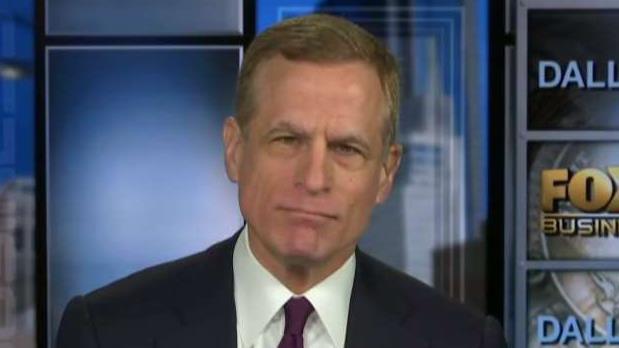Fed's Kaplan warns global slowdown could spill into US
Federal Reserve Bank of Dallas President Robert Kaplan warned on Friday that slight global slowdown as a result of geopolitical uncertainties could ultimately weigh on the U.S. economy.
“The trade tensions and trade uncertainty, in general, I think is having an effect, probably to some extent on weaker global growth,” Kaplan said during an interview with FOX Business’ Maria Bartiromo. “And it’s certainly, I can tell you... having a chilling effect on [businesses’] decision of capex and expansion.”
The Fed president also suggested the effects of the nearly year-long tit-for-tat trade battle between the U.S. and China will eventually start to impact U.S. economic growth. The S&P 500, for instance, receives more than 45 percent of its revenue from outside of the U.S, he noted.
“My concern is that when global growth decelerates, as we’ve seen in Italy and Germany and underneath the surface in China, that typically is going to spill over in the United States,” he said. “We’re not immune to slowing global growth.”
It’s the latest signal that policymakers at the U.S. central bank will be patient -- and slightly dovish -- in setting monetary policy in the year ahead as they watch for signs of an economic downturn.
During the Federal Open Market Committee’s January meeting, Fed Chair Jerome Powell echoed that sentiment. Strong economic data -- the unemployment rate remains near historic lows, and inflation is still hovering around the Fed's 2 percent goal -- indicates the economy will grow at a "solid pace" in the year ahead, Powell said, albeit slower than in 2018.
But Powell also said that cumulative effects from the U.S.-China trade war; uncertainties surrounding Brexit and economic fallout from a 35-day partial government shutdown in the U.S. warranted a "patient wait-and-see approach" regarding future rate decisions.
CLICK HERE TO GET THE FOX BUSINESS APP
"We still see sustained expansion of economic activity, strong labor conditions and inflation near 2 percent," Powell said at the time. "But the crosscurrents suggest a less favorable outlook."




















